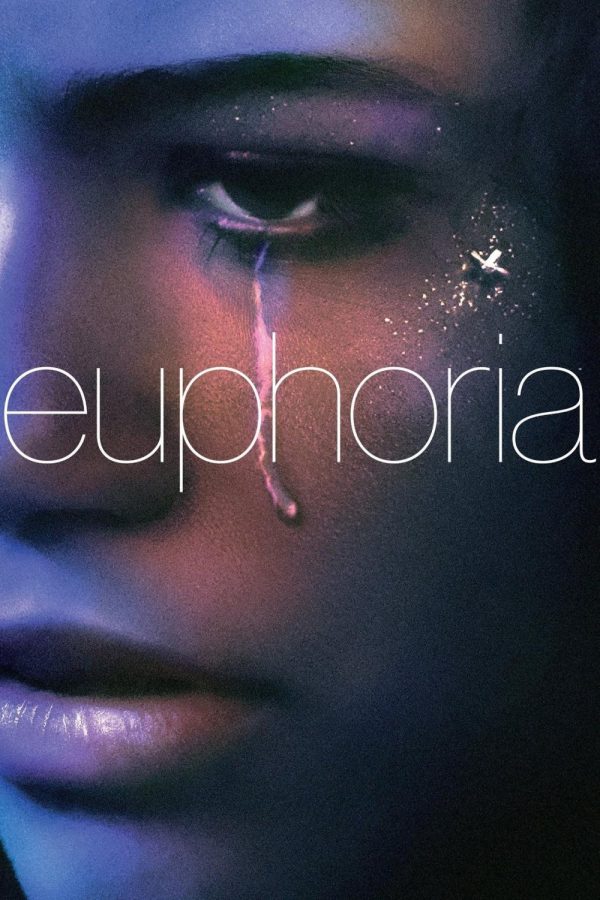‘Euphoria’ had warnings, you just didn’t listen
Euphoria received backlash and praise for its explicit content.
March 26, 2022
HBO Max’s hit show “Euphoria” has received both critical backlash and unconditional praise throughout the airing of its second season. The second season, like the first, was filled with graphic, violent scenes from beginning to end. The backlash notoriously originates from angry or concerned viewers who only see the violence depicted in the show. The praise, however, comes from the millions of people who applaud the show for finally shedding light on real-world issues.
So, the age-old question remains: Does “Euphoria” glorify sex, drugs and violence, or does it provide an outlet for the existing problems in the world to be talked about?
What “Euphoria” does is effectively present several so-called controversial issues in a manner that appeals to a young-adult mindset. It utilizes the unreasonably attractive cast members who play an unrealistic age group to discuss such issues.
Let’s introduce a few of those issues and explain why they make “Euphoria” so popular and important.
Substance Abuse, Depression and Anxiety
The main character Rue (Zendaya) struggles throughout her teenage years with substance abuse, specifically opioids. Rue gets hooked on the pills after her father is in hospice care and she begins to steal from his prescriptions. “Euphoria” correctly highlights how easy becoming addicted is, but it incorrectly highlights the steps taken to help Rue. Nonetheless, the show uses the platform it has to accurately illustrate how detrimental substance abuse can be.
With this information, the claim can be made that “Euphoria” doesn’t glorify drugs. This is transparent because Rue’s life is not sunshine and rainbows because of the opioids. She’s a suicidal teenage girl who struggles everyday to get herself out of bed. It’s not something you watch and say, “This is what I want.”
It’s heartbreaking, tragic and realistic. Depression is an actual issue that millions of teenagers struggle with, and “Euphoria’s” coverage doesn’t glorify it. Instead, “Euphoria” allows viewers the opportunity to see they’re not alone.
Drug abuse and all, the millions of people watching the show are able to see how life-damaging these issues are. It’s not glory, it’s reality.
Body Image
Another main character, Kat Hernandez (Barbie Ferreira), deals with an issue that really no other character does: body image. Kat is known as the “big girl,” although all her friends are skinny and popular, she doesn’t hold the title. Especially in the first season, viewers watch Kat’s mental health rise and fall.
Kat’s struggle with body image and self-confidence creates a space for viewers to see another serious issue exposed. That exposure is enough to applaud, but “Euphoria” takes it a step further by creating a plotline where Kat becomes confident in herself and takes charge of her self-image, but then falls back down into a self-loathing state. These ups and downs seem like you’ll get vertigo, but that’s not accidental.
This is a reality for so many young women, and it’s incredibly important to be discussed. “Euphoria” provides space for that discussion and once again gets the message across that you are not alone.
Broken families and alcoholism
Last but not least, “Euphoria” covers the topics of divorce and alcoholism. These two are often portrayed in the show by one family: the Howards.
Life is messy for the Howard family, where the mother is an alcoholic and the father is a non-present, manipulative drug addict. “Euphoria” shows the effect of alcoholism on families in more ways than the Howard house though, and in reality, 43% of the U.S. population has been exposed to alcoholism within their families.
“Euphoria” shows viewers whatever situation they may be in, they’re not alone. The show gives attention to topics that deserve attention. It doesn’t glorify these topics, but depicts how detrimental they can be.
For the people uncomfortable watching the program, you have the option to turn it off. Don’t blame “Euphoria” for showing you a reality that makes you uncomfortable, it has warnings for a reason.









